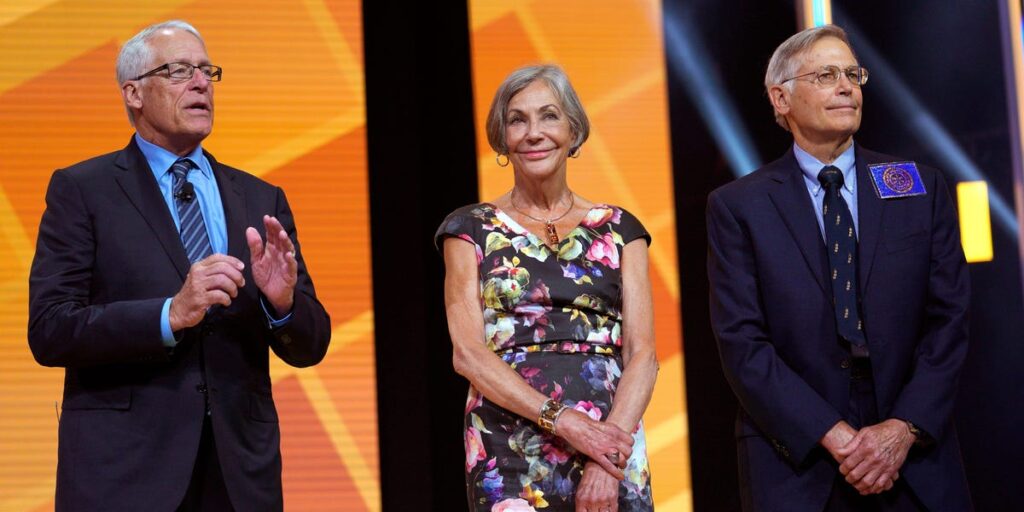The Waltons are worth about $330 billion, far more than Elon Musk ($237 billion), according to the Bloomberg Billionaires Index, and much of the family’s vast wealth can be attributed to smart moves made by Walmart founder Sam Walton in the 1970s.
In 1953, when Walton’s future retail empire consisted of just a handful of stores, the entrepreneur followed his father-in-law’s advice and organized the business as a family partnership.
He left 20% of his shares to each of his four children, Jim, Rob, Alice and the late John T., with the remaining 20% being held by himself and his wife, Helen.
In his autobiography, “Sam Walton: Made in America,” Walton describes the main advantages of this construction:
“Because the transfer of ownership occurred long ago, there was no need to pay significant gift or inheritance taxes,” he wrote.
“The principle behind this is simple: the best way to reduce your inheritance tax payments is to transfer assets before they increase in value.”
In other words, Walton left 80% of Walmart to his children when it was worth next to nothing. If they had inherited his stock when he died as a billionaire in 1992, nearly 40 years later, they would have had to pay billions of dollars in estate taxes.
The late Sam Walton of Walmart. Sam’s Club.
Holding their Wal-Mart stock as a partnership and deciding as a group when to cash in had another benefit: It meant the Waltons looked after their fortunes rather than “squandering money everywhere to live lavishly,” Walton wrote.
“It wasn’t extravagant or outrageously expensive. That was part of the plan — to keep the family together and maintain a sense of balance for our standards.”
The law also preserved the family’s control over Wal-Mart and prevented the company from being broken up and sold for parts — “its best defense against a would-be buyer,” Walton wrote.
Financial prudence was also taught to the children by giving them a say in how the family’s assets were spent when they were under the age of nine.
“The financial aspects were great, but there was another side to it – the relationships it built between children and families. It fostered a sense of responsibility to each other. Nothing beats that,” Helen Walton writes in her book.
Looking to the future
It has been more than 70 years since Walton opened his first $5.10 store in Bentonville, Arkansas and started the family-owned business.
He could never have imagined that Walmart would go on to become one of the world’s largest companies, with annual net sales of approximately $600 billion, employing 1.6 million Americans or about 1 percent of the U.S. workforce, and with a market capitalization of approximately $600 billion.
Nor would he have expected that his three surviving children would eventually each have a net worth of nearly $100 billion, but he’ll surely be pleased that the bulk of their wealth is still held in Walmart stock held in a family trust.
Walton, who lived modestly for a billionaire, knew there was a risk that future generations would squander the family fortune on immoral luxuries like a private island.
“One of the real reasons I’m writing this book is so that my grandchildren or great-grandchildren will read it years from now and know that if you ever start doing stupid things like that, I’ll come back to haunt you. So don’t think about it.”



